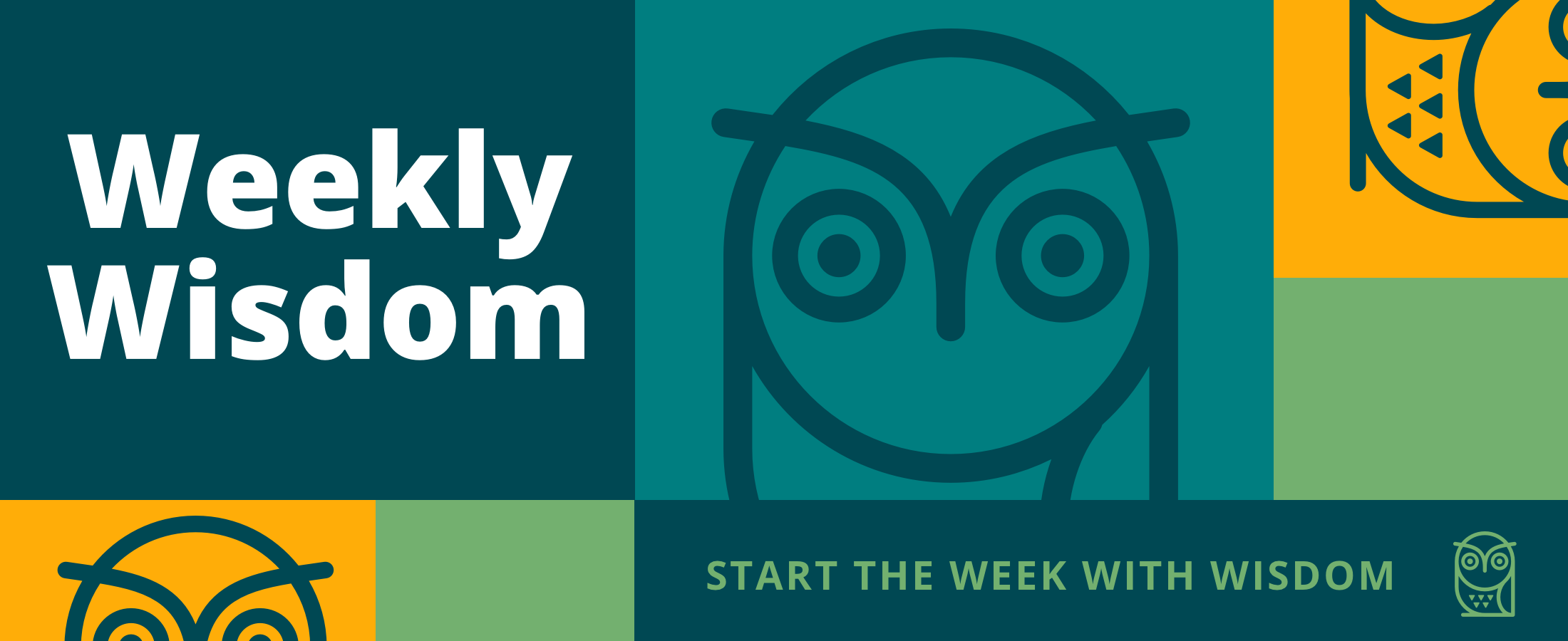You have to have a culture that embraces, supports, and is committed to these students and their success. The second key element is having the people who are committed to the culture. Once you have that platform, then you can start to think about programs. That’s the mindset we’ve brought to this.

Weekly Wisdom is an event series that streams live on Facebook, Twitter, and LinkedIn on Mondays. Each event also becomes a podcast episode. Every week, the UIA joins forces with Inside Higher Ed and talks with a sitting college president or chancellor about how they're specifically navigating the challenges of this moment. These conversations are filled with practicable things you can do right now by unpacking how and why college leaders are making decisions within higher education. These episodes will also leave you with a sense of optimism and inspiration.
We know now the world is much more complicated than we thought. Historic institutions that are non-adaptive are going to have difficulty adjusting to these kinds of high-speed changes. We need to instill the ability to adjust and keep performing our mission as a core part of what we do.
Michael Crow
This is the time when American higher education understands that our strength as a country will be inextricably tied to our success in bringing people from all backgrounds into the problem solving as we face the future.
Freeman Hrabowski, III
We’ve got a lot of important work to make sure that our institutions come through this pandemic and get stronger, at the same time that we address the issues that are right in front of us around systemic racism.
Mark Becker
If you start to address what’s important to people, I think people are going to take you seriously, regardless of if you’re in a room with them, or if you’re doing it virtually.
Frank Dooley
You’ve got to be willing to have courage to have these open and frank discussions, you’ve got to put yourself in a position to foster these kinds of discussions, and sometimes, more often than not, you will listen to your constituency and they will have the better solutions.
Harold L. Martin, Sr.
Bridget Burns, CEO of the University Innovation Alliance, and Doug Lederman, Editor and Co-Founder of Inside Higher Ed, speak with Dr. Daria J. Willis, president at Howard Community College. Since President Willis' last visit to the Weekly Wisdom Podcast, she's changed institutions and has a lot to share about her growth and insights. This time, she talks about common mistakes in a new presidency, challenges for presidents of color, ensuring the board of trustees' support, contract negotiation tips, and cultural resonances and responsibilities of higher ed leadership. Topics include:
- Practical advice for new higher ed leaders
- A different set of expectations that women and people of color might face
- The politics of higher ed leadership
- Must-haves and nice-to-haves for new presidents
- Book and program recommendations
Bridget Burns, CEO of the University Innovation Alliance, and Doug Lederman, Editor and Co-Founder of Inside Higher Ed, speak with Dr. Michael Sorrell, president at Paul Quinn College and a frequent guest on the Weekly Wisdom Podcast. President Sorrell talks about good and bad examples of leadership, showing vulnerability, finding work-life balance, the best way to deliver bad news, and DIY executive professional development. Topics include:
- Takeaways from leaders who understand people and power, and also from leaders who don't lead effectively
- The importance of leaders showing their humanity to those who follow them
- A necessary strategy for building personal time into a high-pressure job
- Helping others maintain perspective during a crisis
- Seeking and accepting critical feedback through informal peer reviews
Bridget Burns, CEO of the University Innovation Alliance, and Doug Lederman, Editor and Co-Founder of Inside Higher Ed, speak with Dr. Valerie Sheares Ashby, who recently assumed the role of president at University of Maryland, Baltimore County. President Sheares Ashby talks about becoming UMBC's first new leader in decades, the nature of servant leadership, how higher ed can shape the future, and how self-care is vital in doing her work effectively. Topics include:
- The most effective way that outgoing leaders can make their departure easier for their successor and their institution
- Positive examples and lessons for leadership
- The critical need for inclusive excellence at all levels of higher ed
- The day-to-day importance of staying grounded while pursuing visionary work
- Shared wisdom and reading recommendations for higher ed leaders
